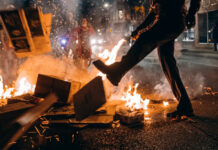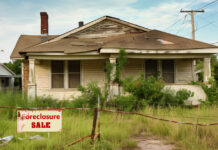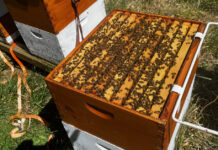I am concerned that a fresh wave of COVID-19 could hit the U.S. this fall and carry through the holiday season. Around the world, the COVID-19 Delta mutation is causing new lockdowns, new restrictions, and a return to masking. Evidence from countries like the UK and Israel point to the possibility that the United States will experience a surge in cases as the Delta mutation strikes not only those who are unvaccinated, but sickens some of the vaccinated as well. This could unravel much of the progress we have made fighting COVID-19, and cause significant social disruption.
If we see another wave—and I will admit that it is only a possibility—then what effect will it have on the economy and society and what can you do to prepare for it? Yes, the hype about Delta may be overblown. It may be the same old crowd the blew prior COVID-19 concerns out of proportion doing it again, as this article suggests. But my opinion is that we should prepare in any case. Even if Delta is overblown, there may still be lockdowns and restrictions, especially with Democrats in control.
just in case. We could be right back where we were last December when cases, hospitalizations, and deaths were increasing. We know Democratic governors are going to clamp down again, shutting down restaurants, banning haircuts and manicures, closing gyms and sending us all home to watch streaming services on one screen while we pretend to be paying attention to Zoom meetings on the other. It’s happening around the world, and we can expect it to start in states like California and New York.
The Whipsaw Effect
Right now, the economy is firing on so many cylinders, we’re worried about it redlining and blowing the inflation gasket. Now imagine the hope and enthusiasm in the market being dashed into a thousand shards like a glass baseball hit by a bat. That’s what a sudden COVID-19 wave and another government shutdown will do to the economy: It will shatter.
I think we have to prepare for the possibility that it will be worse than March 2020 when the stock market collapsed.
But the market is only part of the story. The real danger lies in how people will react. There are so many emotionally weak, easily distraught, fragile people in the country today that another lockdown could cause them to implode.
Distraught, emotionally disturbed people sometimes lash out. They beat their spouses, abuse their kids, drink too much, self-medicate with illegal drugs, take their anger out on strangers, exhibit road rage, and occasionally shoot people. When they get together in large groups, they riot and loot, striking out at the perceived unfairness of it all. They attack authority, even if those in authority are trying to help them.
Prepare to be the only sane one in the room. Then figure out how to leave the room and lock the door behind you.
Boiling Over
We’ve been through this once already; you should know what to expect. Just expect it to be a little more extreme this time, maybe crazier, and probably more out of control. Think of more Karens, more fragile personalities who can’t stand to see you enjoying yourself when they are locked up inside, and angry people who blame everyone but themselves.
This country is like a volcano; if things continue on their current course, the hot lava will bubble out, run down the side of the mountain, and do little or no damage. But if the volcano gets plugged up prematurely, the pressure will build until it blows. When that happens, you don’t want to be in the vicinity.
Maybe I’m paranoid, but that doesn’t mean I’m wrong.
Another wave of the pandemic will probably result in all the social ills we’ve experienced getting worse: More frustration, more resentment, more anger and more hatred. More crime, more violence, and more murders. Expect more politicians to try to take advantage of the tragedy to gain votes, pumping up the anger and violence to wield it like a club. Expect cities to burn and mayors to let it happen.
How to Prepare
The best advice I can offer is to move away from crowded urban areas. If that isn’t possible, then keep your head down, don’t make yourself a target, and avoid trouble.
In terms of physical prepping, look back 12 to 18 months ago, remember what you wish you had done better the first time around, and do it now. Stock up on toilet paper, canned soup, frozen meat, yeast and other things that were sold out.
If I am right, then we have a brief window, maybe just a few weeks to a few months, in which to act. Here are a few other things to consider doing:
- Eat out now, while you still can.
- See family, friends, and loved ones. Be social before people withdraw again.
- Travel this summer, before they ban again it. Just don’t get stranded overseas.
- If you consumed or used up any of your preps last year, replenish them while they are still available.
- Stockpile survival food and fill your freezer and prepper pantry while there is still good availability, and the drought has not caused too many shortages.
- Buy Christmas presents early, because the shopping season might be disrupted.
- Expect more factory shutdowns, slowdowns at ports, and other problems in the supply chain.
- Fill your home heating oil or propane tank now, before prices rise with the cold weather.
- Buy some ammo and do some training. Ammo prices have actually dropped a bit, but don’t expect them to stay there if we see another wave of COVID-19 or more violence.
Don’t Get Caught by Surprise
A trend has three parts: The early part while the wave is building, then the peak which can last for a while, followed by the aftermath in which the peak crashes.
In a hurricane evacuation, the early adopters see the problem and get out early, before the Governor has declared an emergency and the local municipalities tell people to evacuate. These are the people that bolt on their hurricane shutters, pack up their belongings, grab their bug out bags, and leave town while the traffic is normal.
As the wave rises, the batteries and bottled water sell out, the plywood and generators are gone, and the traffic builds. People who leave as the wave crests find gas stations are out of gas, hotels along the evacuation route are full, and spend the night in bumper-to-bumper traffic until they run out of gas.
When the wave crashes, it’s bad, but it’s usually over quickly and you either survive or you don’t. The worst off are those who live in a dangerous location but were caught by surprise and didn’t prepare. They end up on the roof, hoping a rescue helicopter spots them before the next wave rips little Jimmy out of his mother’s grasp.
This is your warning. This is your chance to be among the early adopters. Prepare for increased crime and violence. Get ready for economic disruption. Expect political shenanigans. Prepare for civil unrest.
Maybe Hurricane “Delta” will stay off shore and spare us. Then you can breathe a sigh of relief. But if not, you’ll be glad you prepped.








